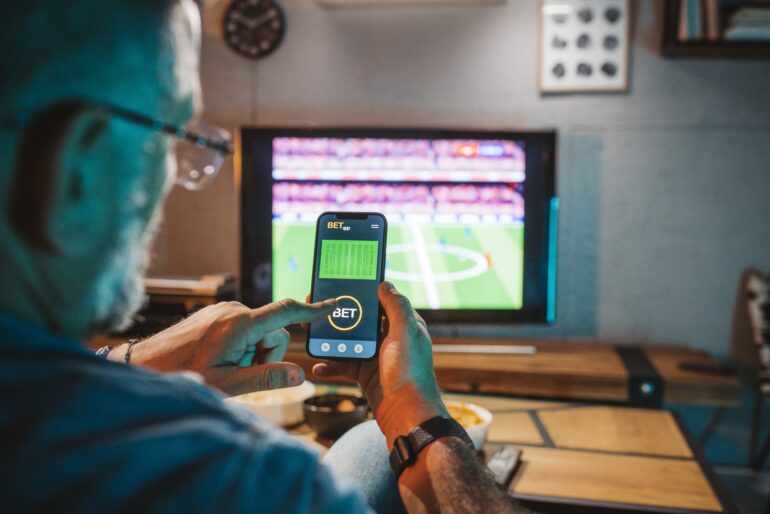Joe is a full-time college student who also works some nights as a security guard. He played basketball all through high school and loves to follow the sport. Tonight one of his favorite teams is playing and he’s placed a US$100 bet for them to win.
As he sits in his vehicle with one eye on the parking lot and one eye on his physics textbook, he listens to the game. His phone keeps vibrating. A notification from a sports wagering app asks if he’d like to place a prop bet – a sort of side bet unrelated to the specific outcomes of the game – for a specific player to make five rebounds tonight. He adds $20 for this bet. His app buzzes again, now suggesting a prop bet for a certain player to make four three-point shots this game. The odds look good; he knows this player; he adds $40 here.
The game continues and his app keeps pinging him about more bets. By the end of the game, Joe’s team has won. He feels good about how well he knows basketball and his ability to pick a winning team and is buzzing from the thrill of chasing in-game bets. But he’s actually down $50 on the evening, as he lost most of his prop bets, and he’s not done nearly enough of his physics homework. He settles in for a long night and tries to push away any thoughts about how much money he actually ended up losing. And I’m certain Joe will be back placing bets the next time his teams are playing.
Although Joe isn’t a real person, and the specifics of a sports wagering app can vary from vendor to vendor and even from state to state, this scenario illustrates the kind of game play many sports wagerers report. One estimate suggests there were around 19 million online sports bettors in the U.S. in 2022; as more states gradually legalize these apps, the number of Joes out there is bound to rise.
I’m a licensed clinical psychologist who has researched and treated gambling-related harm for over a decade. I’m interested in how and why bettors like Joe seem able to focus on how they picked a winning team while discounting that they actually ended up in the red. Humans are built to like reward, pleasure and winning. Sports wagering apps bring these specific opportunities right to your smartphone for immediate enjoyment.
Gambling feels good in the heat of the moment
Several theories from neuroscience and psychology can point to why some people might be particularly primed to enjoy gambling.
One prominent theory of learning suggests people are driven by two basic brain systems. One leads people to seek new, exciting and novel situations. A complementary system encourages them to apply caution, notice risk and keep themselves safe.
In action, these systems are a bit like the gas and the brake on a car – but imagine driving, as my great uncle used to, with both feet. Everyone has both pedals, but how sensitive you are to the brake or how much you crave more gas varies from person to person.
Think of how some people avoid airplanes entirely, while others…


